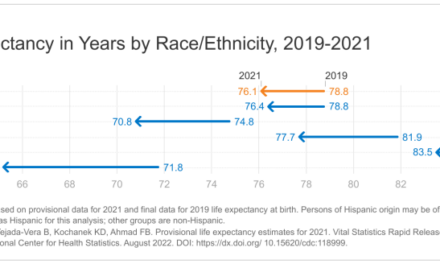The Rev. Dr. Charles Adams, the giant of a preacher who led one of Detroit’s most prominent churches and died Wednesday at 86, was widely known as “the Harvard Hooper” for his Ivy League intellect and his animated preaching style, but when I was a little girl, it was the hooping — not the Harvard — that kept my attention.
Every Sunday, I sat in the balcony of Hartford Memorial Baptist Church with my siblings and cousins. We made a game of predicting the point near the end of his sermon when Rev. Adams would get swept up in the Holy Spirit. Pastor Adams would twirl out of the pulpit, his robe twisting majestically like a holy tornado. He would kick his leg forward and let it dangle, teasing the start of a fierce “shouting” session. When the message was really powerful, he would take off down the stairs to the sanctuary’s main floor, and if the spirit really moved, he would run and dance down the aisle all the way to the back of the church. On those Sundays, I would lean forward in the pew and peer over the balcony’s edge, half-wondering if he was going to return to the pulpit or run clear out of the building.
It was great entertainment for a little girl whose spirituality and brain were not yet developed enough to comprehend the homiletical and exegetical genius of a man who has been called one of Black America’s greatest preachers.

As I grew older, and fell in love with the written word, I would sit in the pew mesmerized by my pastor’s magnificent command of language. He wasn’t afraid to use a $100 word, but only if it fit. He used his Ivy League pedigree not as a weapon, but a tool.
Born to preach
Rev. Adams’ sermons were never lazy. His best-known sermon, “Drunk on the Eve of Reconstruction,” warned that like a drunken Noah, we disappoint God when we allow ourselves to be taken off mission by worldly pursuits. It has been lauded one of the finest ever offered in the Black church. The sermon included Adams’ famous multilingual expression of gratitude for God’s grace — brilliantly delivered at Rosa Parks’ funeral in 2005 — that has brought many an admirer to their feet in thunderous applause.
His sermons were rich in metaphor, thick with history, grounded in Gospel, lifted by hope. I’m sure if a search engine could identify the word he spoke most from the pulpit, it would be “hope.” He possessed the hope of a man who had lost his mother at age 13, and had served as a caregiver for his ailing grandmother as a financially strapped graduate student, but somehow ended up as an aide to Martin Luther King Jr., a doctorate degree recipient, later a professor, at Harvard University and the pastor of one of Detroit’s most celebrated churches for 50 years.

He was born to preach, they say. My grandfather, whose parents were among the first members of Hartford church, once told me that he never remembered 5-year-old Charles Adams wearing anything other than a three-piece suit, and that even elementary-school-age Adams always had a Bible in hand. His seriousness of purpose earned him a stable of formidable mentors at a young age — including King, whom then-graduate-fellow Adams assisted when the civil rights icon taught a class at Morehouse College — legendary Morehouse President Benjamin E. Mays and the Rev. Charles Hill, his predecessor, who led Hartford for 48 years.
Under Adams’ leadership, the church transformed from Hartford Avenue Baptist Church, a mid-sized edifice at the corner of Hartford and Milford on the city’s grittier “old westside,” to Hartford Memorial Baptist Church, a majestic cathedral in a tree-lined neighborhood in northwest Detroit.

A progressive leader
Like Hill and King, Adams believed in the Black church’s role as a social change agent. He was a vocal opponent of the South African apartheid regime long before the issue gained cultural cachet, once giving an address about the issue at the United Nations. As president of the Detroit Chapter of the NAACP, he led an economic boycott of Dearborn when the city closed its parks to non-residents, a move that reminded many of the city’s Orville Hubbard-era of overt racism.
The United Auto Workers’ legendary Local 600 was formed at Hartford Avenue Baptist Church, and Adams continued Hill’s advocacy of jobs as a community stabilizer and instiller of pride. Under his leadership, the church’s physical footprint spread. Hartford bought up vacant land that once housed Mt. Carmel Hospital, Lewis College of Business, a strip club and a car dealership, and in their place sprouted restaurants, a Home Depot and a senior living community, bringing with them hundreds of jobs. He was one of the first Black pastors to appoint women deacons, a decision that brought criticism from many of his peers.
Adams also had a stint as the leader of Progressive National Baptist Convention, and was called upon to preach in some of the most prestigious pulpits in the nation, and to stand beside U.S. presidents and world leaders for occasions like the signing of the 1994 Jordan peace accords.

He did all this while maintaining a spiritual shepherd’s tender connection to his flock. He baptized his congregants, counseled them, married them, funeralized them, promoted them and prayed for them.
He stepped down in 2019, and was succeeded by his son, Rev. Charles Christian Adams, who is continuing his father’s path as a servant leader.
Adams’ grateful congregants called him P.A., short for Pastor Adams, but it occurs to me that the letters strung together also make up a nickname for the word “father.” As Christians, we believe that we are endowed with a heavenly father who loves us unconditionally. I was doubly blessed with an earthly daddy, Calvin Trent, who was my fierce protector, guide and mentor. But my patriarchal blessings were running over, because I was also blessed with my spiritual Pa, the Rev. Dr. Charles Gilchrist Adams — the Harvard Hooper — who never stopped making me lean forward in the pew in rapt attention.
Kim Trent is the deputy director-prosperity for the Michigan Department of Labor and Economic Opportunity and a lifelong member of Hartford Memorial Baptist Church. Submit a letter to the editor at freep.com/letters.




